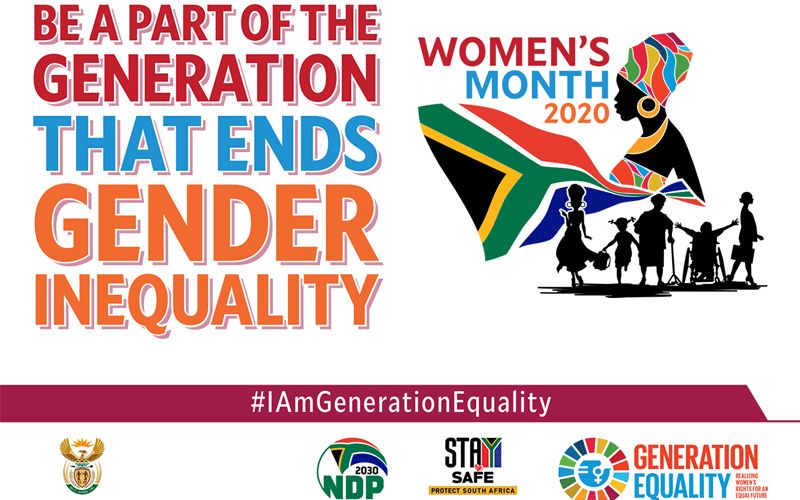She said, in reference to the Global Gender Gap Index statistics, “This means that South Africa has undergone a more positive gender-empowerment transformation than many developed nations – including Switzerland, the Netherlands, and even the US!”
She notes that despite the progress, real change was slow for the majority of women and girls in the country where she said socio-economic inequalities had “persisted in the three decades of the post-apartheid era.”
“It (South Africa) has the greatest inequality of income in the world and extremely high inequality in wealth,” Sr. Shibambu said, and added, “This means women remain undervalued, they continue to work more, earn less, have fewer choices and experience multiple forms of violence at home and in public spaces.”
According to the Superior General of the Companions of St. Angela, a Religious Congregation of Sisters in Johannesburg, the impact of the pandemic on society has the potential to reverse progress the country has made on women empowerment and eradicating poverty.
“Across the globe, women earn less, save less, hold less secure jobs, are more likely to be employed in the informal sector. They have less access to social protections and are the majority of single-parent households,” the Catholic nun says, and adds, “The impact of the pandemic on society therefore has the potential to reverse progress the country has made on women empowerment and eradicating poverty.”
(Story continues below)
The gender inequality can also be observed in the Church where the Catholic nun says that they are treated as lesser human beings.
“With all the strides that the government has made to achieve gender equality, the question remains, how far has the church moved to achieve this? Locally, women in the church are treated as second class citizens especially Religious Sisters,” she says.
Referencing the recent Vatican appointment that included six women, she says, “Pope Francis epitomizes what it means to put women first by promoting women to be part of important Dicastery in his administration.”
She added in reference to Pope Francis, “It is reported that he has added to this list by appointing six more women in the most senior roles ever given to women within the Catholic Church’s leadership, to oversee the Vatican’s finances. We pray that our local church may follow the Pope’s example and walk the talk of promoting gender equality in the church.”
With global statistics indicating that more men are succumbing to the coronavirus than women, Sr. Shibambu notes with concern the likelihood of many women ending up without husbands. Additionally, she says that the burden of taking care of COVID-19 patients has been taken by women who she says make up the bulk of healthcare providers.
Meanwhile, the member of the Compassions of St. Angela has extended condolences to women who have “died brutally in the hands of our fathers, our brothers, our sons and our friends,” and those who have succumbed to COVID-19 related complications including religious sisters.
“We also remember those who are missing and their families cannot find closure to what has happened to their daughters and mothers. To achieve gender equality, we need to eliminate this harmful practice against women and girls, including femicide, rape, and misogyny and domestic violence and other oppression tactics,” she said.
Sr. Shibambu added in reference to gender equality, “We can achieve this by becoming change agents and joining hands as communities in eradicating the gender-based violence and femicide pandemic.”
Agnes Aineah is a Kenyan journalist with a background in digital and newspaper reporting. She holds a Master of Arts in Digital Journalism from the Aga Khan University, Graduate School of Media and Communications and a Bachelor's Degree in Linguistics, Media and Communications from Kenya's Moi University. Agnes currently serves as a journalist for ACI Africa.








